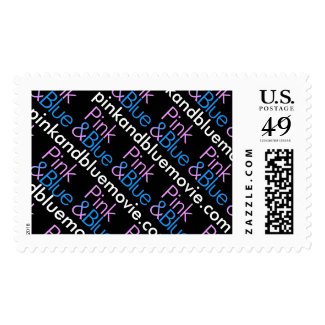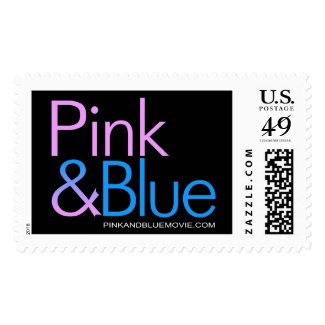Amy Byer Shainman-Author-Advocate-Producer, BRCA & other hereditary cancer syndromes > Educate-Entertain-Empower
Watch "Pink & Blue: Colors of Hereditary Cancer"
Monday, December 14, 2015
Thursday, November 26, 2015
10 Upcoming Screenings of Pink & Blue: Colors of Hereditary Cancer
10 Screenings in 9 cities
at AMC theaters across the U.S.
Pink & Blue: Colors of Hereditary Cancer
There are 8 screenings in various cities on December 6th at 2pm and 2 screenings in San Antonio-December 10th & 11th. In San Antonio the film plays directly across the street from SABCS- the San Antonio Breast Cancer Symposium.

REGISTER & BUY TICKETS NOW
at AMC theaters across the U.S.
Pink & Blue: Colors of Hereditary Cancer
There are 8 screenings in various cities on December 6th at 2pm and 2 screenings in San Antonio-December 10th & 11th. In San Antonio the film plays directly across the street from SABCS- the San Antonio Breast Cancer Symposium.

REGISTER & BUY TICKETS NOW
-Tickets available online only
-Q & A panel immediately following each screening
-Check out cities below or go right to the eventbrite site to watch the trailer and register.
Tuesday, November 24, 2015
Family Medical History - I Have Lynch Syndrome
Family Medical History - I Have Lynch Syndrome -Georgia Hurst
Click here to read more from Georgia Hurst!
Georgia Hurst is a patient advocate for those with Lynch syndrome. She is the founder of the website and blog: ihavelynchsyndrome.com. She frequently writes about the emotional aspects of having Lynch syndrome, and writes for various websites and journals in order to create awareness amongst the global medical community about this hereditary cancer syndrome. Georgia is a wife and mother, and loves espresso, books, and being bossed around by her adorable dog named Sid.
Monday, November 23, 2015
Wednesday, November 18, 2015
Saturday, November 14, 2015
Wednesday, November 11, 2015
Tuesday, November 3, 2015
Sunday, October 25, 2015
Friday, October 9, 2015
Friday, September 25, 2015
LOS ANGELES PREMIERE! Pink & Blue: Colors of Hereditary Cancer
October 2-October 8
2015
Daily Showings at:
12:10pm, 2:30, 4:50, 7:20, 9:30
LAEMMLE THEATRE MUSIC HALL
9036 WILSHIRE BLVD.
BEVERLY HILLS
TICKETS GO ON SALE 9/29 at 7pm
*The Pink & Blue team will be at the October 2nd, 7:20pm screening.
It is highly advisable that you purchase tickets in advance for this screening.
Both women and men are faced with difficult decisions when they carry a BRCA gene mutation or other hereditary cancer syndrome.
We meet the doctors and their patients grappling with these tough decisions like whether or not to to have preventative surgeries. Director Alan M. Blassberg tells the story of how this disease ripped his family apart and what he must face as a BRCA 2 positive male. The film highlights the message that men carry this mutation half the time and that this lack of information is deadly. A higher percentage of men with breast cancer die from it than women.
Dr. Kristi Funk, M.D Angelina Jolie’s surgeon, speaks passionately about the need for awareness and prevention. We also meet those who ultimately didn’t survive, they speak in the hope that their passing will help save the lives of others.
Thursday, September 10, 2015
Sunday, August 16, 2015
The BRCA BROTHERHOOD - Support for Men
GUEST POST by Dave Bushman
 |
| Dave Bushman is the creator of the BRCA BROTHERHOOD |
Discussions about BRCA gene mutations have focused on women. However, it is also important that men be part of the discussion. Men are equally as likely to carry as well as pass on a BRCA genetic mutation. MALES need to part of the BRCA discussion as there are many different issues that affect them as well.
1. Men who are BRCA positive with or without a cancer diagnosis.
2. Men whose wives/partners are BRCA positive (with or without a cancer diagnosis)
3. Men who have a child who is BRCA positive (with or without a cancer diagnosis).
4. Men who are BRCA positive but have a child who has not yet undergone genetic counseling or testing.
5. Men who are BRCA positive but has one or more relatives who have not yet undergone genetic counseling or genetic testing.
Men in each of these categories have their own specific concerns, needs, and interests.
With that in mind, I set up The BRCA Brotherhood Facebook group, a private group for men only. It is the companion group to The BRCA Sisterhood Facebook group, which is for women only.
No one needs to go through these issues alone. The issues surrounding Hereditary Breast and Ovarian Cancer affect women, men, spouses, significant others, siblings, & children.
The purpose of The BRCA Brotherhood is to allow men who have a BRCA gene mutation or have a family member with a BRCA gene mutation an opportunity to discuss all the various issues in a safe, supportive place.
Sunday, August 2, 2015
LIST of BRCA & HEREDITARY CANCER BOOKS & MOVIES
 |
| I've made a list on amazon of BRCA & Hereditary Cancer Books & Movies. Just click on the link below. |
BRCA & HEREDITARY CANCER
BOOKS & MOVIES
Monday, July 20, 2015
$249 GENETIC TESTING & ELLEN MATLOFF UNPLUGGED
Ellen Matloff, MS, CGC is the President and CEO of My Gene Counsel.
Ellen is the founder and former director of the Cancer Genetic Counseling Program at Yale School of Medicine and a lead plaintiff in the 2013 United States Supreme Court gene patent case. Ellen has authored more than 50 scientific publications in the field, is an established educator, lecturer and media spokesperson and has received national awards for her ongoing patient advocacy efforts.
Thursday, June 11, 2015
Sunday, April 5, 2015
Wednesday, March 25, 2015
Updated post: 4/15/15 INTERVIEWS "Angelina Advocacy Effect"
"ANGELINA ADVOCACY EFFECT"
@BRCAresponder after Angelina Op-Ed #2
A fellow BRCA advocate reached out to me and asked me for tips on doing interviews surrounding Angelina's latest op-ed and BRCA/hereditary cancer. I thought this was a great opportunity to share these tips in a blog post for others doing interviews. My interviews following Jolie's 2nd op-ed are listed here as well.
XO Amy @BRCAresponder
1. Be yourself!
* even if you are a no-makeup person, television studio lights can really wash you out. Wearing just a bit of HD foundation and HD powder, and blush or bronzer will really help you just look more like yourself on television. Not confident in your makeup application skills? Tip: just mix a dime size drop or less of foundation with your regular moisturizer! Let dry a few minutes before dusting of setting powder and your bronzer.
3. Have 1-2 key points in your head that you really want to get across no matter what interview questions are asked.
4. For me, I always stress the importance of genetic counseling in the genetic testing equation in EVERY interview.
5. LISTEN to what the interviewer is asking you and know that your answer really has an opportunity to educate, save lives, empower.
6. Refrain from using words like "should"- or "you should" or any judgement of others' cancer risk management choices. Everyone is different. Do your best to not say "UM". Practicing key points in advance can help avoid this.
****7. Make sure you know the facts/science behind BRCA/Hereditary cancer and state those-not your opinion. Do your best to encourage the television station/producer/ interviewer that it is really smart that you be joined by an expert in GENETICS. The National Society of Genetic Counselors , or a breast surgeon, gynecological oncologist, or oncologist extremely familiar with BRCA/Hereditary cancer. *Language is very important. Say, recommendations as per research (science)… or my experience was...
8. Talk about facts and/or your story w/compassion and passion.
9. Breathe
10. Be confident, you are educating and saving lives with your interview.
11. You are the expert of your own experience.
12. You can do it, you are amazing, embrace your opportunity in the spotlight!
_____________________
"ANGELINA ADVOCACY EFFECT"
"ANGELINA ADVOCACY EFFECT"
@BRCAresponder in the news after Angelina Op-Ed #2
 |
| 3/24/15 @BRCAresponder on @WPTV news web chat transcript & 2 ARTICLES @BRCAresponder featured in:"Angelina Jolie Pitt reveals she had ovaries removed -The actress has the BRCA1 mutation, which puts her at high risk for breast and ovarian cancer"March 24, 2015 | By Diane Mapes / Fred Hutch News Service"Understanding Angelina Jolie Pitt's medical choices Actress, filmmaker lauded for raising awareness and saving lives, but her actions also bring up questions" March 25, 2015 |By Diane Mapes / Fred Hutch News Service@BRCAresponder/ONCOLOGY NURSING NEWS
@BRCAresponder featured in
|
BLOGPOST, RADIO SHOW, CURE MAGAZINE
 |
| RADIO SHOW 4/13/15 |
Angelina Jolie shares the next chapter of her BRCA mutation story, with @BRCAresponder @GeneticCouns president http://t.co/VCI9leKnuW
— CURE Magazine (@cure_magazine) April 9, 2015
Friday, February 13, 2015
THE JEWISH STANCE ON CANCER RISK MANAGEMENT- IS IT THE SAME AS VACCINATION?
Recently I have been struck by the many pieces written by various Rabbi's addressing the "Jewish stance" on vaccination.
Rabbi Jeffrey Salkin
Rabbi Rebecca Einstein Schorr
Rabbi Jason Miller
Rabbi Dan Dorsch
STATEMENTS ON VACCINATIONS FROM THE OU & RABBINICAL COUNCIL OF AMERICA
Various quotes: "It's a parental
responsibility" "It's a mitzvah" "Judaism places the highest value on preserving human life"
I was particularly struck by the following:
(from Rabbi Jeffrey Salkin's piece Jewish anti-vaxxers take note: Parental responsibility trumps parental rights)
- You’re not allowed to endanger yourself needlessly. The Shulchan Arukh, the classic code of Jewish law, says: “Wherever there is a potentially life-endangering pitfall or obstacle, it is a positive commandment to remove it, to be on guard against it and to take very good care in the matter, as the Torah says: “Guard yourself and guard your soul.” (Deuteronomy 4:9-10).
Is this "Jewish take" the same when it comes to decisions surrounding cancer risk management decision making? Meaning: for those at a VERY high risk for cancer due a hereditary cancer gene mutation is the "Jewish stance" that a person SHOULD HAVE prophylactic surgeries that would drastically reduce their cancer risk? And, if so which prophylactic surgeries? How does science, healthcare and/or cancer risk percentages come into play when interpreting Jewish Law? Or how does Jewish Law come into play when interpreting healthcare, cancer risk percentages, & science? 1 in 40 Jewish people carry a BRCA gene mutation. In addition, there are MANY, MANY other hereditary cancer syndromes. There are different ramifications and percentages surrounding hereditary cancer risk for men and women. For example, should men who carry a gene mutation that puts them at higher risk for breast cancer--should these men be having a preventive mastectomy too? How much percentage of risk constitutes parental responsibility or a "potentially life endangering pitfall"? Does the cancer risk percentage matter? Where does Jewish Law draw the line? If a person has an increased risk for cancer, even if the number is small and one chooses to reduce that risk with a prophylactic surgery --is it a positive commandment to remove it, to be on guard against it? Does Jewish Law even have an answer for this? Is cancer risk management decision making too intricate a subject with too many variables for Jewish Law to even have a position?
Finally, is there a different posture in Judaism regarding a woman's parental responsibility and a man's parental responsibility? Are there different postures within the reform, conservative, and orthodox communities?
I have more questions than answers. Jewish scholars and Rabbi's where should I stand on this subject? Parental responsibility was definitely a huge influence on my own cancer risk management decisions.
As a hereditary cancer/BRCA health advocate I always stress to others that what is right for one person may not be right for another.
I often say, "While preventive surgery was right for me it may not be what is right for you and there are other less invasive options you can do to reduce your cancer risk." (please note that these other options I am referring to do not drastically reduce hereditary cancer risk like preventive surgeries do)
It's Friday night and my parental responsibility tells me I need to turn off the computer and be with my kids. I know that is right. But as I turn off electronics I am thinking about the parallels between vaccination decisions and cancer risk management decisions. As a Jewish woman, health advocate, and parent…am I right in advising others that they have "other" options than prophylactic surgery to reduce their hereditary cancer risk? According to Jewish Law, am I wrong?
SHABBAT SHALOM
Saturday, February 7, 2015
Subscribe to:
Posts (Atom)



















